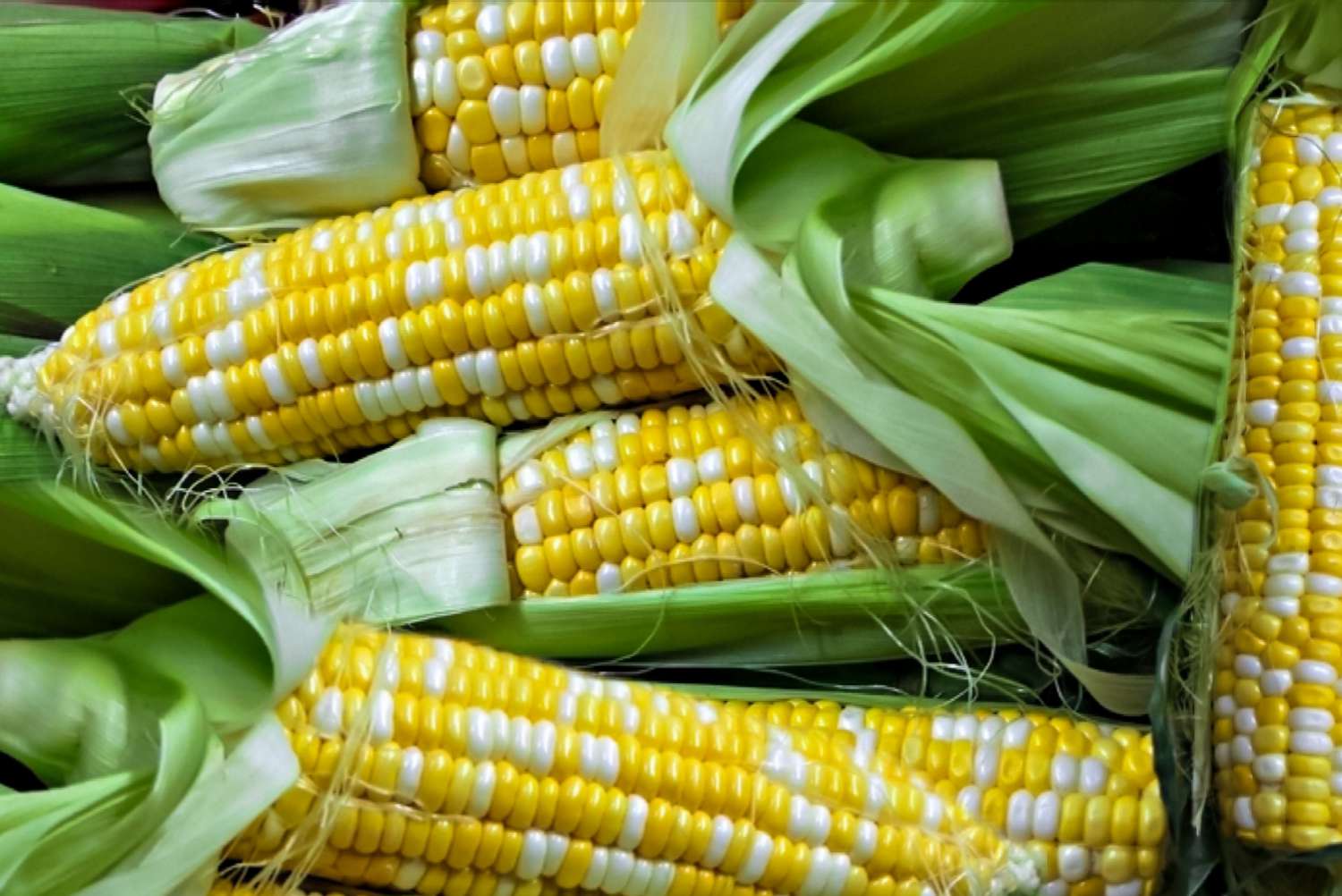The Role of Hybrid Seeds in Climate Change Adaptation Among Agricultural Communities in Sub-Saharan Africa
Introduction:
Sub-Saharan Africa (SSA) stands at the forefront of the global battle against the multifaceted challenges imposed by climate change, particularly within the agricultural landscape. As temperatures rise, rainfall patterns become increasingly erratic, and extreme weather events become more prevalent, the agrarian communities of SSA face an unprecedented threat to their traditional farming practices. These challenges, compounded by a rapidly growing population and the imperative to ensure food security, demand innovative and adaptive strategies.
This article ventures into the heart of the discourse on climate change adaptation within SSA, with a particular focus on the transformative role that hybrid seeds play in mitigating the impacts on agricultural communities. The agroecological diversity across SSA necessitates an understanding of how agricultural practices must evolve to meet the challenges imposed by climate change. Hybrid seeds, a product of advanced breeding techniques, emerge as a promising solution with their potential to facilitate resilience, enhance yields, and foster sustainable agricultural practices.
The agricultural sector in SSA has long been the cornerstone of livelihoods, providing sustenance for millions of smallholder farmers and serving as a linchpin for economic stability. However, the region’s vulnerability to the impacts of climate change, ranging from prolonged droughts to unpredictable weather patterns, jeopardizes the delicate balance that sustains these communities. This article seeks to unravel the intricate interplay between climate change and agriculture in SSA, shedding light on the pivotal role that hybrid seeds can play in forging a resilient and sustainable path forward.
As the global community grapples with the urgency of climate action, understanding the specific challenges faced by SSA and devising context-specific solutions is paramount. The adoption of hybrid seeds emerges not merely as a technological advancement but as a holistic strategy that addresses the socio-economic and environmental dimensions of climate change adaptation. Through an exploration of the benefits and challenges associated with hybrid seed adoption, this article aims to contribute to the evolving narrative on climate-smart agriculture in SSA, providing insights that resonate with policymakers, researchers, and agricultural practitioners alike. By synthesizing knowledge from diverse fields, we endeavor to paint a comprehensive picture of the complex relationship between hybrid seeds and climate change adaptation in SSA, offering a roadmap for sustainable agricultural development in the face of an uncertain climatic future.
The roles hybrid seeds play in climate change adaptation include but are not limited to the following:
- Drought Resistance: hybrid seeds, developed through advanced breeding techniques, often exhibit enhanced drought resistance, making them crucial assets in the face of changing climate patterns. Research conducted by the International Maize and Wheat Improvement Center (CIMMYT) underscores the capacity of hybrid seeds to maintain robust growth even under water-stressed conditions (CIMMYT, 2019). The genetic diversity introduced through hybridization equips plants with mechanisms to cope with water scarcity, enabling them to endure and recover from drought stress more effectively than traditional varieties. The genetic makeup of hybrid seeds contributes to their drought resistance by enhancing root development, adjusting physiological processes, and improving overall stress tolerance. These mechanisms enable plants to extract water from deeper soil layers, efficiently utilize available water, and exhibit resilience during periods of water scarcity. Research findings from CIMMYT’s studies on drought-tolerant maize varieties exemplify how hybrid seeds can maintain yield stability even in environments prone to water deficits (CIMMYT, 2019). These drought-tolerant hybrids not only secure food production but also enhance the livelihoods of farmers who depend on rainfed agriculture.
- Water Use Efficiency: beyond mere drought resistance, hybrid seeds contribute significantly to water use efficiency, a critical factor in regions where water scarcity is increasingly prevalent. The design of hybrid seeds prioritizes traits that allow plants to maximize their productivity with limited water resources. This efficiency is particularly relevant in SSA, where erratic rainfall patterns and prolonged droughts challenge traditional farming practices. Studies such as those by Lobell et al. (2011) emphasize the importance of water use efficiency in sustaining agricultural productivity in the face of changing climate conditions. Hybrid seeds, with their innate ability to optimize water consumption, not only ensure more stable yields but also contribute to the conservation of water resources.
- Crop diversity: crop diversity is a cornerstone of resilient agricultural systems. It provides a buffer against environmental uncertainties, such as changing temperature and precipitation patterns, and strengthens the ability of farming communities to maintain productivity in the face of evolving challenges. Traditional farming practices often rely on a limited set of crops, leaving agricultural systems vulnerable to pests, diseases, and changing climatic conditions. Hybrid seeds, developed through the intentional crossbreeding of distinct varieties, introduce genetic diversity that is crucial for crop adaptation. These seeds are tailored to express a combination of desirable traits, such as resistance to pests and diseases and tolerance to diverse environmental conditions. CIMMYT’s research has demonstrated that the introduction of hybrid seeds significantly enhances crop diversity by expanding the range of available traits within a single crop species (CIMMYT, 2019).
- Adaptability to Diverse Environmental Conditions: the adaptability of hybrid seeds to diverse environmental conditions is a key feature that sets them apart. Farmers in SSA often contend with varying soil types, altitudes, and rainfall patterns. Hybrid seeds are designed to thrive in different agroecological zones, allowing farmers to select varieties that suit their local conditions. This adaptability mitigates risks associated with climate variability, ensuring that crops can flourish even as environmental conditions shift.
- Mitigating Risks and Increasing Resilience: the inherent diversity within hybrid seeds acts as a risk mitigation strategy. In the face of unpredictable weather events or the emergence of new pests and diseases, the varied genetic makeup of hybrid seeds provides a reservoir of traits that can confer resilience to crops. This adaptability is especially crucial in SSA, where climate change introduces uncertainties that traditional farming practices may struggle to address.
- Hybrid Seeds in Crop Rotation and Diversification: crop rotation and diversification are vital practices for maintaining soil health and preventing the buildup of pests and diseases. Hybrid seeds, with their ability to adapt to diverse cropping systems, facilitate the implementation of effective crop rotation strategies. The flexibility offered by hybrid seeds encourages farmers to diversify their crops, reducing the risk of monoculture-related vulnerabilities.
- Pest and Disease Resistance of Hybrid Seeds: Pests and diseases inflict substantial losses on global crop yields, with smallholder farmers in Sub-Saharan Africa (SSA) particularly vulnerable to their onslaught. Climate change exacerbates this challenge by altering pest behavior, expanding their geographic range, and creating favorable conditions for disease proliferation. In the absence of effective mitigation measures, pest and disease outbreaks can decimate entire harvests, plunging communities into food insecurity and economic hardship.

Hybrid seeds, meticulously bred to amalgamate desirable traits from different parent lines, confer inherent resistance to pests and diseases. By harnessing the natural genetic diversity available within plant species, breeders develop hybrids with heightened immunity to common pathogens and pests. CIMMYT’s research underscores the efficacy of hybrid seeds in combating pest and disease pressures, thereby safeguarding crop yields and farmer livelihoods (CIMMYT, 2019). The resistance of hybrid seeds to pests and diseases stems from a combination of genetic factors that bolster the plant’s defense mechanisms. These include the expression of specific genes associated with pest deterrence, the production of biochemical compounds that inhibit pathogen growth, and the activation of systemic resistance pathways within the plant. Through these mechanisms, hybrid seeds thwart the advances of pests and diseases, minimizing the need for chemical interventions and promoting environmentally sustainable farming practices.
The deployment of hybrid seeds in agricultural systems not only reduces reliance on chemical pesticides but also fosters ecosystem resilience. By minimizing pest and disease outbreaks, hybrid seeds contribute to the preservation of biodiversity, soil health, and water quality. Moreover, the economic benefits accrued from higher yields and reduced input costs further incentivize the adoption of hybrid seeds as a cornerstone of sustainable pest management strategies.
Conclusion: The adoption of hybrid seeds stands as a beacon of hope amidst climate change in Sub-Saharan Africa (SSA). As agricultural communities battle with the challenges posed by shifting climatic patterns, hybrid seeds emerge as indispensable tools in the quest for adaptation and resilience. Through their multifaceted benefits, from enhanced drought resistance and water use efficiency to pest and disease resistance, hybrid seeds offer a holistic solution to the complex challenges confronting farmers in SSA. The ability of hybrid seeds to thrive across diverse agro-ecological zones, coupled with their capacity for rapid adaptation to evolving environmental conditions, equips farmers with the resilience needed to navigate the uncertainties of a changing climate. By promoting crop diversity, reducing dependence on chemical inputs, and fostering ecosystem resilience, hybrid seeds pave the way for a more sustainable and inclusive agricultural future.
However, the realization of the full potential of hybrid seeds hinges on concerted efforts to address existing barriers to adoption. High initial costs, limited access to information, and concerns regarding seed sovereignty and intellectual property rights pose significant challenges that must be overcome through targeted interventions and policy support. By fostering collaboration among policymakers, researchers, and agricultural extension services, stakeholders can create an enabling environment that facilitates the equitable distribution and sustainable use of hybrid seeds among farming communities in SSA.
In conclusion, the role of hybrid seeds in climate change adaptation among agricultural communities in SSA cannot be overstated. As we confront the complexities of a rapidly changing climate, embracing the promise of hybrid seeds offers a pathway to resilience, sustainability, and prosperity for generations to come. By harnessing the power of innovation, collaboration, and inclusive governance, we can unlock the full potential of hybrid seeds as catalysts for transformative change, ensuring that the agricultural landscapes of SSA thrive in the face of adversity.
References
- (2019). CIMMYT Annual Report 2019. International Maize and Wheat Improvement Center. Retrieved from https://www.cimmyt.org/annual-
report-2019/
- Lobell, D. B., Schlenker, W., & Costa-Roberts, J. (2011). Climate trends and global crop production since 1980. Science, 333(6042), 616-620.










































































